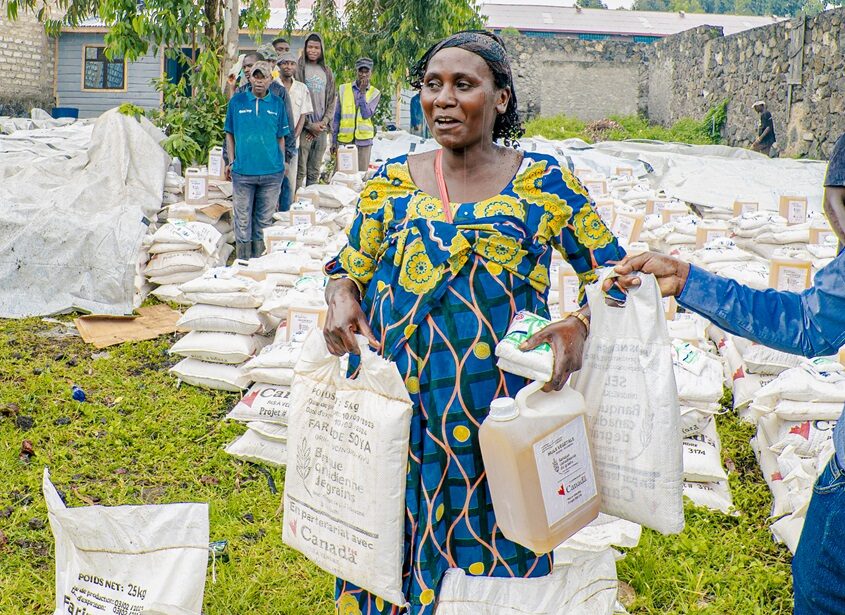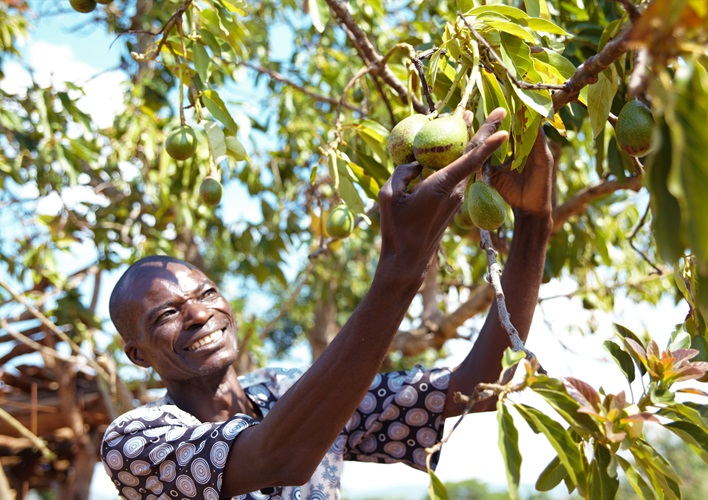While the number of people going hungry in regions like eastern Asia and Latin America has decreased, hunger is still on the rise in western Asia, the Caribbean and Africa. Up to 783 million people around the world are experiencing hunger – far above pre-pandemic levels.
The impacts of violent conflict, climate change, natural disasters and economic challenges continue to burden food systems with additional stressors, making it even more difficult for people experiencing hunger to access nutritious food – or in the worst situations, enough of a ration to get through the day.
The Food and Agriculture Organization of the United Nations and the World Food Programme issue quarterly warnings highlighting Hunger Hotspots. Please remember to keep the people living in these countries in your prayers.
AFGHANISTAN
Since the fall of Kabul in August 2021, Afghanistan has been facing one of the world’s worst humanitarian crises. Between May and October 2023, about 2.8 million people were estimated to face emergency levels of acute food insecurity. And things aren’t improving. Cuts in humanitarian assistance, a prolonged economic crisis, and harsh winters causing deterioration to the land and prolonged drought in areas like Bamyan Province, could mean more people will face acute food insecurity.
DEMOCRATIC REPUBLIC OF CONGO
The Democratic Republic of Congo is facing one of the largest hunger emergencies in the world, with over 27 million people experiencing food insecurity. Of these, 2.9 million people are expected to face emergency levels of hunger between January and June. DR Congo also hosts one of the largest displaced populations in the world. Conflict will continue to underpin elevated levels of acute food insecurity in the eastern Ituri and North Kivu provinces.

In North Kivu, DR Congo, armed conflict forced Musekula Nyiranzabimana, her husband and their four children out of their home. Mennonite Central Committee’s local partner Ministry of the Churches for Refugees and Emergencies is supporting their family, along with other displaced people, with food assistance while they get back on their feet. (Photo: Elijah Muweza Sehene)
HAITI
In Haiti, the deteriorating security situation, coupled with protracted economic crisis, low agricultural production, and the potential impact of hurricanes, is driving already critical levels of hunger. Between March and June this year, it is estimated around 1.4 million people will experience emergency levels of food insecurity – severe lack of food access leading to frequent deaths, loss of assets and increased malnutrition levels.
LEBANON
Lebanon is in the fourth year of its severe economic collapse which has worsened the rates of unemployment, poverty, inflation, purchasing power, and hunger. Between May and October 2023, about 1.4 million Lebanese residents, Syrian refugees and Palestinian refugees were estimated to be facing crisis levels of hunger. Any spill over of the conflict between Gaza and Israel, which severely escalated in October 2023, could further exacerbate the food security situation in Lebanon.

Canadian Baptist Ministries is supporting Middle East Revive and Thrive (MERATH) with a nine-month food assistance project to increase immediate consumption of food and reduce hunger for 7,691 people. Pictured is Mazen, who works at the distribution center of his church in the Beqaa Valley, and is a Syrian refugee himself. He says: “These families are not used to being taken care of with unconditional love. It makes a huge difference when we are able to help them in a way that reflects the unconditional love Jesus showed us through our help, you are reminding them that they are not alone, but that we are one family in which we are all brothers and sisters in humanity.” (Photo: MERATH)
OTHER COUNTRIES TO KEEP IN YOUR PRAYERS
Sudan, Burkina Faso, Yemen, South Sudan and Gaza are at the highest alert level, meaning they have areas experiencing catastrophic hunger or communities at risk of facing catastrophic hunger. Please pray for immediate emergency food assistance, for lives to be saved in places where famine is imminent, and strength to the helpers as they continue to serve in the midst of intersecting crises.
This story was originally published in the 2024 Winter edition of Breaking Bread.




